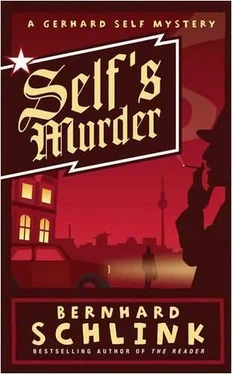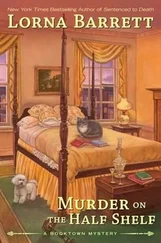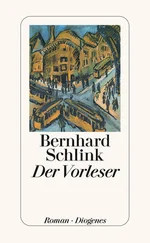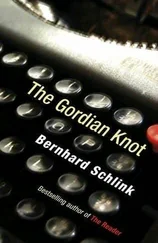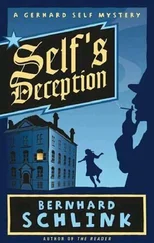“We’ll find a really good apartment, Gerhard.”
Everything was fine but not fine. The stories life writes demand endings, and as long as a story doesn’t have an ending, it keeps everyone who participates in it in check. It doesn’t have to be a happy ending. The good don’t have to be rewarded and the bad punished. But the threads of fate cannot be left dangling: they have to be woven into the story’s tapestry. Only when that is done can we leave the story behind us. Only then are we free to begin something new.
No, the story that had started at the beginning of the year in the snow was not yet over. Even if I’d have liked to make peace with Schuler, who’d maybe had one glass too many or been affected by the weather. I didn’t know all the threads that were still waiting to be woven into the carpet, and I knew even less what the carpet’s pattern was or how I could find out. But all I had to do was wait. Stories strive toward their ends, and don’t leave you alone until they reach them.
When the leaves began to turn I got a letter from Georg. He sent me a manuscript that was scheduled to be published in a law journal. “Laban’s children”-Georg had turned his research on Laban’s heirs into an article. Did I have any suggestions?
He made it clear from the start of the article that Laban did not in fact have any children. No natural children, and no disciples, either. While other professors guard their circle of students like mother hens, Laban saw to it that his students would stand on their own feet as soon as possible and follow their own paths. Georg suspected that an early passion for a colleague’s wife, one that was perhaps reciprocated but that remained unfulfilled, had marked him in a way that kept him from close bonds with students and from deep relationships with women.
But he did have children. He was as close to his sister’s two children as he might have been had they been his own. He particularly favored his nephew, Walter Brock, who had also become a lawyer and judge.
Walter Brock. Georg described his path from Breslau to Leipzig, his career from district court judge to judge of the regional high court, the insults, the humiliations, and finally the firing with which his career came to an end in 1933. He described his marriage; his children, Heinrich and Ursula; his and his wife’s suicides after their apartment was ransacked during Kristallnacht. He described how Heinrich had escaped to London at the eleventh hour, and how Ursula hadn’t managed to get out in time and so had gone into hiding when the deportations began. She had disappeared. Laban, who died in 1918, had tenderly loved little Ursula, who was born in 1911.
There was no need for me to double-check, but I took Ursula Brock’s passport out of my filing cabinet and saw that her date of birth was October 10, 1911. Then I studied her passport photograph. She had had bobbed dark hair and a dimple in her left cheek, and she looked at me attentively with happy, somewhat startled eyes.
I found Georg at the courthouse. “I’ve got Ursula Brock’s passport.”
“You’ve got what?”
“Ursula Brock, Laban’s great-niece. I’ve got her passport. I just read your article, and-”
“I’ve got a case at two. Can I drop by afterward?”
“Sure, I’ll be at the office.”
He came by and wouldn’t take coffee, tea, or mineral water.
“Where is it?”
He studied the initial pages with the photograph and the entries and leafed through the rest of the pages slowly and carefully, as if he might be able to elicit hidden information from them.
“Where did you get this?” he asked.
I told him about Adolf Schuler, his archive, and his visit. “He gave me an attaché case that had… that had this passport in it-after which he got into his car, drove off, crashed into a tree, and died.”
“This means that after she went into hiding she sought help in Schwetzingen. Did she find help? Did Weller and Welker get her a new passport? Did they keep this old one for after the war?” He shook his head slowly and sadly. “But she didn’t make it.”
“In your article you wrote that as a Jew she was expelled from the university in 1936. Do you know what she studied?”
“All kinds of things. Her parents were very indulgent and didn’t push her. In the end it was Slavonic studies.” He looked at me entreatingly. “Do you need the passport? Can I have it? I’ve got a picture of Walter Brock and his wife with the small children, and one of Heinrich in London, but I haven’t got a picture of Ursula as an adult.”
He took an envelope out of his briefcase and laid out a series of photographs on my desk. A married couple standing in front of a carefully pruned hedge, the man wearing a suit with a stiff collar beneath his chin and a walking stick in his left hand, the woman in a long dress down to the ground, with a strap in her right hand that harnessed Heinrich around shoulders and chest, like a horse’s bridle. Heinrich was wearing a sailor suit and cap, and Ursula, bigger than her brother and not in a harness, was standing next to her father. She was wearing a summer dress and a wide sun hat. “Don’t move,” the photographer had just called out, and they all were standing still, unblinking. Another picture showed a young man in front of the Tower Bridge, which had just been raised to let a ship pass through.
“Heinrich in London?” I asked.
Georg nodded.
“And this is the house in Breslau in which Laban was born, this is his villa in Strasbourg, this is a postcard of the main building of the Wilhelm University under construction, and-”
“Who’s that?” I asked, pulling out a photograph from beneath the postcards. I recognized the large head, the receding hairline, the large ears, and the protruding eyes. I had seen him the first time through a foggy windshield on the Hirschhorner Höhe and for the last time quite close up when we drove from the hospital to the Luisenpark. I had also seen him when we got out of the car and walked into the park. But Samarin’s head had never made as much of an impression on me as when we sat next to each other on the backseat; he looking stoically before him while I peered at him from the side.
“That’s Laban. Haven’t you seen him before?”
So I drove yet again to the retirement home in Emmertsgrund. The first yellow and red leaves were glowing in the green of the mountains. In some of the fields fires were burning, and at one point the fire stretched all the way to the autobahn. I opened the window to see if it still smelled the way it used to, but only wind came roaring through the open window.
The door to old Herr Weller’s apartment stood open, and the place had been emptied. I went inside and looked out the window at the cement factory from the spot where he and I had sat across from each other and talked. Two cleaning ladies came in and began to mop the floor without paying any attention to me. I wondered why the walls weren’t being painted first. When I asked them what had happened to Weller, they didn’t understand.
In the main office I was told that he had died of a stroke the week before. I’ve never been interested in medicine, nor will I ever be. I imagined old Herr Weller’s brain at work, driven, sly, evil, propelled by bleating laughter like a stuttering engine. Until the engine suddenly stalled. I was told when and where he would be buried. I could still make it if I hurried. I suddenly remembered Adolf Schuler’s funeral. It had slipped my mind, and again I felt as if I’d failed to hold on to him and stop him from getting into the car and driving into a tree.
Old Herr Weller had enjoyed talking to me and would have wanted to talk more-to explain how things were during the war, that the great-niece of his silent partner would have died if he and old Herr Welker hadn’t taken her in and given her a new identity; that she’d been insane to have a damn brat on top of everything, as he’d have put it. That he and Welker had done more than enough, raising the brat after she died. The brat’s real identity? What use would that have been to Gregor Samarin if they’d informed him of his real identity? That would just have given him big ideas. Furthermore, the Brocks lived in Leipzig. Wouldn’t the brat have had a better time of it as Gregor Samarin in the West than he would growing up in a Communist orphanage?
Читать дальше
